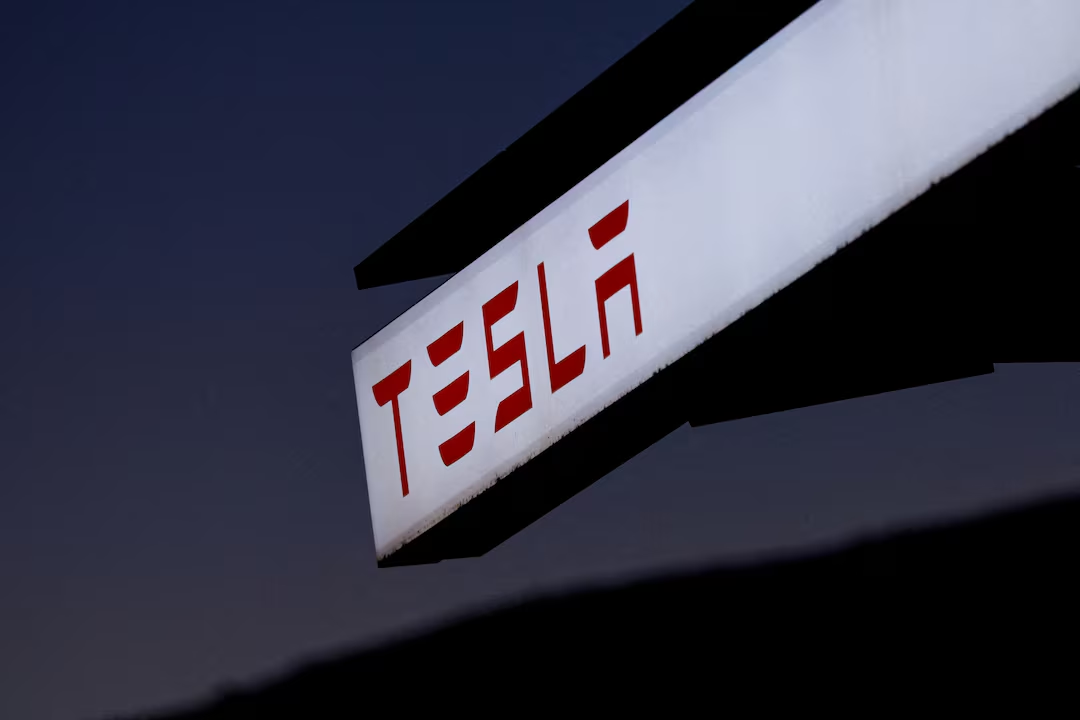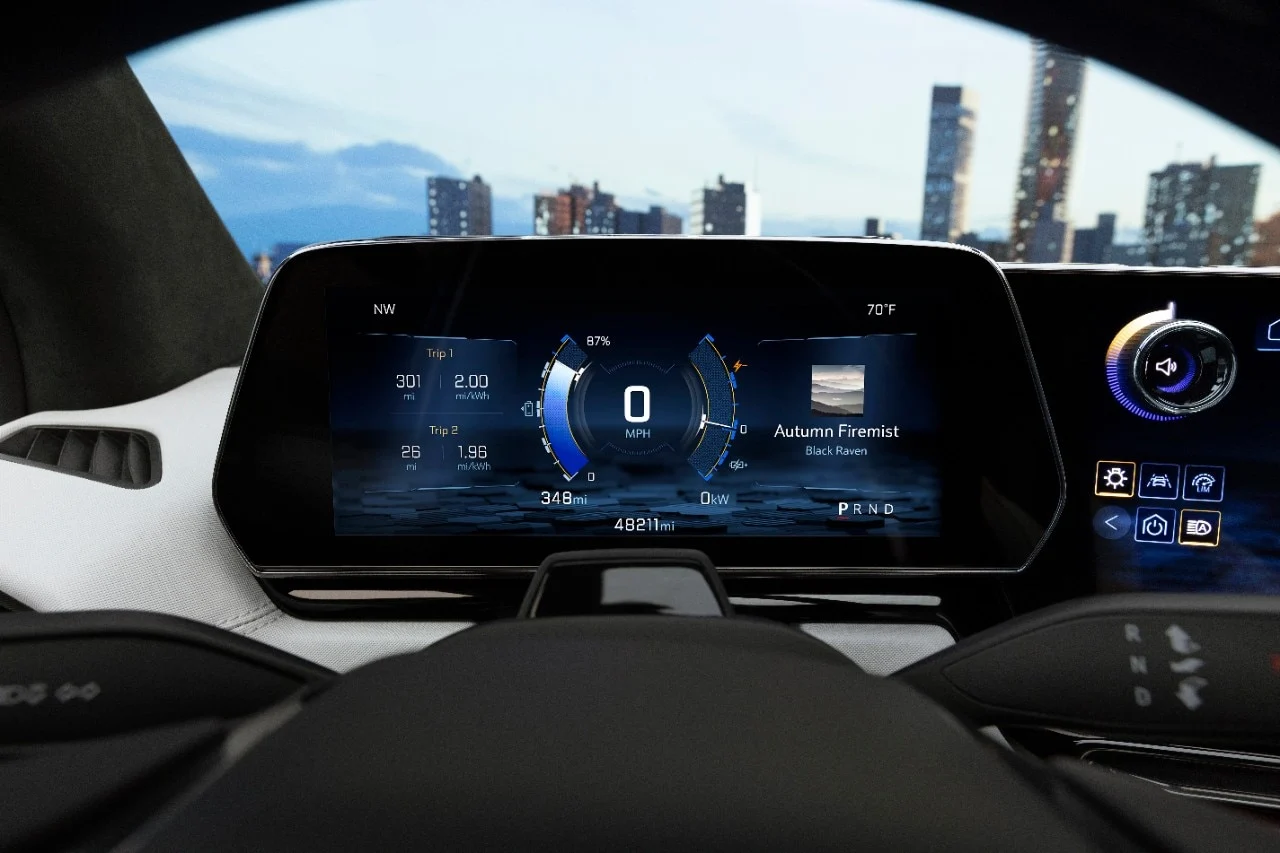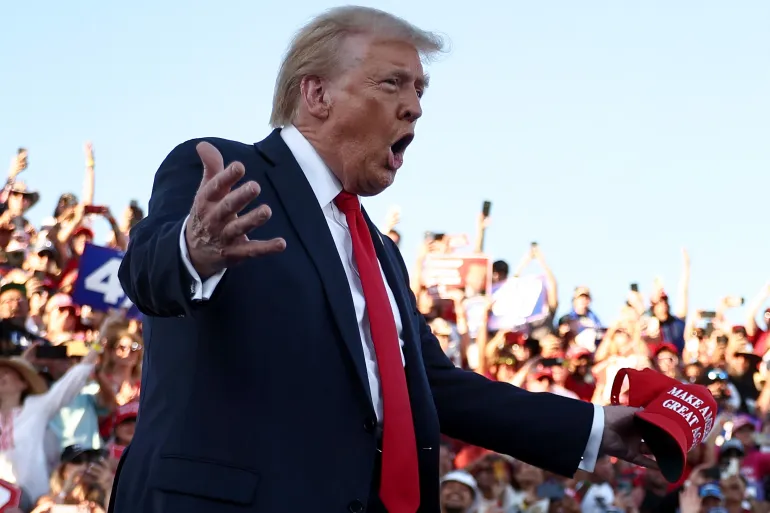Record Surge in Tesla Trade-ins Amid Elon Musk Controversies
The relationship between Tesla owners and their vehicles appears to be shifting dramatically, as recent data shows an unprecedented increase in owners trading in their electric vehicles. This trend comes amid growing controversies surrounding CEO Elon Musk and his high-profile role in the Trump administration. What was once considered a status symbol of environmental consciousness and technological innovation has become, for some owners, a source of social and political discomfort.
Edmunds’ Revealing Data on Increasing Trade-ins
Historic Peak in March 2025: 1.4% of Total Trade-ins
According to recent data released by automotive research firm Edmunds, Tesla vehicles represented a record 1.4% of all trade-ins across dealerships nationwide in March 2025. This figure marks the highest percentage ever recorded for the brand, representing a significant shift in consumer behavior toward what was previously one of the most coveted automotive brands in America.
“We’ve been tracking trade-in data for years, and this Tesla spike is unprecedented for a luxury brand with such a historically loyal customer base,” noted Jessica Caldwell, Executive Director of Insights at Edmunds. “The percentage might seem small in absolute terms, but it represents thousands of vehicles and a major shift in owner sentiment.”
Steady Progression of Trade-in Rates in Previous Months
This March peak didn’t materialize overnight. Edmunds’ data shows a steady upward trend in Tesla trade-ins beginning in late 2024, with each month setting a new record as more owners decided to part with their vehicles. The progression suggests a snowballing effect as public sentiment around the brand continues to evolve.
January 2025 saw Tesla trade-ins account for approximately 0.9% of all vehicles, followed by February’s 1.2%, before reaching March’s peak of 1.4%. This consistent upward trajectory indicates a sustained trend rather than a temporary fluctuation in the market.
Analysis of Purchases at Traditional Dealerships
Perhaps even more telling than the volume of trade-ins is where former Tesla owners are taking their business. Edmunds’ analysis reveals that the majority of these trade-ins are happening at traditional dealerships representing brands like Ford, Hyundai, and GM—companies that have been rapidly expanding their electric vehicle offerings.
Interestingly, many former Tesla owners aren’t abandoning electric vehicles altogether. Approximately 65% of Tesla trade-ins are being exchanged for other electric or hybrid vehicles, suggesting that the issue isn’t with electric technology itself but specifically with the Tesla brand and its associations.
Multiple Factors Fueling Tesla Owners’ Departures
Elon Musk’s Controversial Influence
His Central Role in the Trump Administration
Elon Musk’s appointment to a senior role in the Trump administration has been perhaps the most visible catalyst for changing perceptions of Tesla. As head of the newly formed Department of Government Efficiency (DOGE), Musk has become inseparable from the administration’s policies and public image.
This high-profile government position has transformed Musk from a somewhat politically ambiguous tech innovator to a clearly partisan figure, making Tesla ownership increasingly perceived as a political statement rather than simply a technological or environmental choice.
Budget Cuts and Government Reforms
Musk’s aggressive approach to government spending cuts and bureaucratic reforms has garnered significant media attention and public debate. His stated goal of cutting $2 trillion from federal spending has positioned him as a champion to fiscal conservatives but has alienated many progressive consumers who previously formed a core segment of Tesla’s customer base.
The elimination of certain clean energy incentives and environmental programs under Musk’s recommendation has struck many former supporters as particularly hypocritical coming from the CEO of an electric vehicle company that previously benefited from similar government incentives.
Political Perception and Brand Image Impact
The transformation of Tesla’s brand image has been remarkable in its speed and scope. Once seen as the vehicle of choice for environmentally conscious tech enthusiasts, Tesla cars are increasingly viewed through a partisan lens. This politicization of the brand has made ownership uncomfortable for many who find themselves at odds with Musk’s political alignment.
“Tesla has become a rolling political billboard, which is exactly what many owners never wanted their car to be,” explained consumer psychologist Dr. Amanda Chen. “When you spend $60,000 or more on a vehicle, you don’t want it to make a political statement that contradicts your own values.”
Consumer Backlash and Discontent
Protests and Demonstrations Targeting Tesla
The growing discontent with Tesla has manifested in organized protests at showrooms and service centers across the country. In major cities like San Francisco, New York, and Seattle, demonstrators have gathered with signs bearing slogans like “Dump Tesla, Not Democracy” and “My Next Car Won’t Fund Fascism.”
These demonstrations have received considerable media coverage, further cementing the association between Tesla ownership and support for controversial political positions in the public consciousness.
Vandalism Against Vehicles and Infrastructure
More concerning for current owners have been reports of vandalism targeting Tesla vehicles. Incidents of keying, tire slashing, and window breaking have increased in several metropolitan areas, with owners reporting that their vehicles appear to have been specifically targeted because of the brand.
Supercharger stations have also become targets, with several installations reporting vandalism that has temporarily rendered them inoperable. These incidents, while condemned by political figures on both sides, have contributed to growing unease among owners.
The “Hate” Sentiment Associated with Tesla Ownership
Social media platforms are filled with accounts from Tesla owners describing uncomfortable public interactions related to their vehicles. Many report receiving negative comments from strangers, friends, or family members questioning their political values based solely on their choice of car.
“I bought my Model Y two years ago because it was the best EV on the market and I care about the environment,” said Michael Tran, a software engineer from Portland who recently traded in his Tesla. “Now I get dirty looks in the grocery store parking lot. It’s not worth the hassle anymore.”
Public Expression of Desire to Get Rid of Vehicles
Online forums and social media groups dedicated to Tesla owners have seen a dramatic increase in posts from people actively seeking to exit their ownership. Tesla Motors Club, one of the largest owner forums, has seen a 300% increase in posts in the “Selling/Private Party Sales” section compared to the same period last year.
Many sellers specifically cite Musk’s political activities as their primary motivation for selling, often expressing a sense of betrayal from a company they once enthusiastically supported.
Economic and Competitive Pressures
Sharp Decline in Tesla Stock Price
The controversy surrounding Musk hasn’t just affected car sales; Tesla’s stock price has experienced significant volatility. From its peak above $400 in late 2023, the stock has fallen below $200 in recent months, erasing billions in market value and adding financial concern to the list of reasons owners might reconsider their loyalty.
This stock decline affects current owners in multiple ways. Beyond any direct investment they might have in Tesla shares, the falling stock price raises concerns about the company’s long-term stability and ability to maintain its service network and software updates.
Increased Competition from Other EV Manufacturers
The exodus from Tesla comes at a time when alternatives are more plentiful than ever. Traditional automakers have rapidly expanded their electric offerings, with vehicles like the Ford Mustang Mach-E, Hyundai IONIQ 5, and GM’s new electric lineup providing compelling alternatives with less controversy attached.
These competitors have quickly capitalized on Tesla’s challenges, with marketing that subtly emphasizes their political neutrality and focus on environmental benefits rather than personality-driven branding.
Concerns About Tesla Depreciation
Resale value, long a strength for Tesla vehicles, has become another area of concern. With more owners looking to sell and fewer buyers in the market for used Teslas, depreciation rates have accelerated beyond industry norms for luxury vehicles.
“We’re seeing three-year-old Model 3s selling for 40% below their original purchase price, which is significantly worse than the industry average for that segment,” noted auto industry analyst Robert Johnson. “This creates a self-reinforcing cycle where depreciation concerns drive more sales, which further increases supply and depresses prices.”
Evolving Brand Sentiment and Loyalty
Declining Interest in New Tesla Models
Tesla’s new product announcements, once major events that generated enormous consumer interest and deposits, have seen muted responses recently. The unveiling of updates to existing models and the long-delayed Roadster have failed to generate the pre-order frenzies that characterized previous Tesla launches.
This cooling enthusiasm extends to existing owners, who historically had high rates of trading up to newer Tesla models. Dealership data indicates that former Tesla owners are now more likely to switch brands entirely rather than upgrade within the Tesla ecosystem.
Questioning Brand Loyalty Due to Controversy
Perhaps most damaging to Tesla’s long-term prospects is the erosion of what was once amongst the strongest brand loyalty in the automotive industry. Tesla owners were known for their evangelical enthusiasm, often convincing friends and family to join the Tesla community.
Recent consumer sentiment surveys show that owner satisfaction scores have fallen from industry-leading levels to below average, with the largest declines in the “likelihood to recommend” and “likelihood to purchase again” categories.
Reactions and Concrete Examples of This Phenomenon
Public Statements from Dissatisfied Owners
Joanne Wilson Considering Destroying Her Tesla in Protest
The frustration has led some high-profile owners to dramatic public statements. Venture investor Joanne Wilson, wife of prominent tech investor Fred Wilson, created a stir on social media when she suggested she might destroy her Tesla on camera as a form of protest.
“I’m seriously considering taking a sledgehammer to my Model S and posting the video online,” Wilson wrote on her blog. “I feel physically ill every time I get behind the wheel now, knowing that my purchase helped fund what’s happening in Washington.”
While Wilson hasn’t yet acted on this impulse, her statement resonated with many owners experiencing similar feelings of buyer’s remorse.
Senator Mark Kelly Explaining His Decision to Sell His Tesla for Political Reasons
Even political figures have joined the exodus. Senator Mark Kelly of Arizona publicly announced his decision to sell his Tesla, explicitly citing political differences with Musk as his motivation.
“I can no longer in good conscience drive a vehicle from a company whose CEO is actively working to undermine policies I’ve fought for in the Senate,” Kelly stated. “I’ve traded it in for another American-made electric vehicle that better aligns with my values.”
Hardships Experienced by Owners
Vandalism of Cybertruck Owners at a Public Event
Owners of Tesla’s controversial Cybertruck have reported particularly negative public reactions. At a recent Cybertruck owners’ meetup in Chicago, participants returned to find several vehicles with slashed tires and graffiti referencing Musk’s political activities.
“We just wanted to get together with other enthusiasts and check out each other’s trucks,” said event organizer David Meyers. “Instead, we ended up filing police reports and calling tow trucks. It really brings home how toxic the brand has become in some circles.”
Displayed Support for Tesla
President Trump’s Purchase of a Tesla as a Show of Support
Not all reactions to Musk’s political involvement have been negative. President Trump himself made headlines by purchasing a Model X, calling it “an amazing American-made machine” during a brief press conference with the vehicle.
This presidential endorsement, while appreciated by some Tesla enthusiasts, has further cemented the perception of Tesla as a politically aligned brand rather than a neutral technology company.
Some Fans Buying Tesla Stock Despite the Decline
A dedicated core of supporters has used the stock price decline as an opportunity to increase their investment in the company. Social media groups like “Tesla Bulls” have organized “buy-in” events, encouraging members to purchase shares in a show of support for Musk and his vision.
“The market is overreacting to short-term political noise,” wrote one prominent Tesla investor on Twitter. “Five years from now, nobody will remember this controversy, but Tesla will still be leading the EV revolution.”
Expert Analysis and Implications for the Future
Opportunity for Competitors
Potential for Traditional Manufacturers and Startups to Gain Market Share
Industry analysts see this moment as a potential inflection point in the electric vehicle market. With Tesla’s dominance showing signs of vulnerability, both established manufacturers and EV startups have a rare opportunity to capture market share from the longtime industry leader.
“We’re seeing unprecedented openness to non-Tesla EVs among consumers who previously wouldn’t consider anything else,” said Michelle Rodriguez, Principal Analyst at AutoIntelligence. “This represents a multi-billion-dollar opportunity for competitors who can position themselves as the right alternative at the right time.”
Importance of Offering Competitive Prices, New Technology, and Less Controversy
To capitalize on Tesla’s challenges, competitors are focusing on three key areas: price competitiveness, technological innovation, and brand positioning that emphasizes neutrality rather than personality.
“The winning strategy appears to be offering 90% of Tesla’s technology at 80% of the price, while keeping the CEO’s political opinions out of the marketing,” noted automotive marketing consultant James Wilson. “Companies that can deliver on these three fronts are seeing significant gains in former Tesla owner conversions.”
EV Market Trends
Increasing Number of Available EV Models
The timing of Tesla’s challenges coincides with an explosion in EV model availability. In 2023, consumers had approximately 30 electric models to choose from across all manufacturers. By early 2025, that number has more than doubled to over 70 models, with more announced for the coming months.
This proliferation of options means that consumers can now find electric vehicles in virtually every segment and price point, making it easier than ever to leave Tesla without abandoning electric technology.
Growing Consumer Interest in Non-Tesla EVs
Consumer surveys indicate a broadening interest in electric vehicles beyond Tesla. While Tesla once commanded over 70% of EV consideration among potential buyers, that figure has fallen below 40% in recent studies, with the remaining interest distributed across a wide range of alternative brands.
This shift in consumer attention predates the current controversy but has been significantly accelerated by recent events, creating what some analysts describe as a “perfect storm” of challenges for Tesla’s market position.
Caution Regarding the Data
Analyst Opinion on Potential Disconnect Between Data and Actual Consumer Sentiment
Some industry experts urge caution in interpreting the current data too broadly. “While the trade-in numbers are significant, they still represent a minority of Tesla owners,” pointed out automotive industry analyst Dr. Sarah Chen. “Most owners are taking a wait-and-see approach rather than immediately trading in their vehicles.”
Chen suggests that the current surge might represent the actions of the most politically motivated owners, with the majority still evaluating their options based on practical considerations like vehicle performance, charging infrastructure, and their existing investment in the Tesla ecosystem.
As the situation continues to evolve, one thing is clear: the relationship between Tesla, its CEO, and its customer base has entered uncharted territory. Whether this represents a temporary challenge or a fundamental reshaping of the electric vehicle landscape remains to be seen, but competitors and consumers alike are watching closely as this unprecedented situation unfolds.




